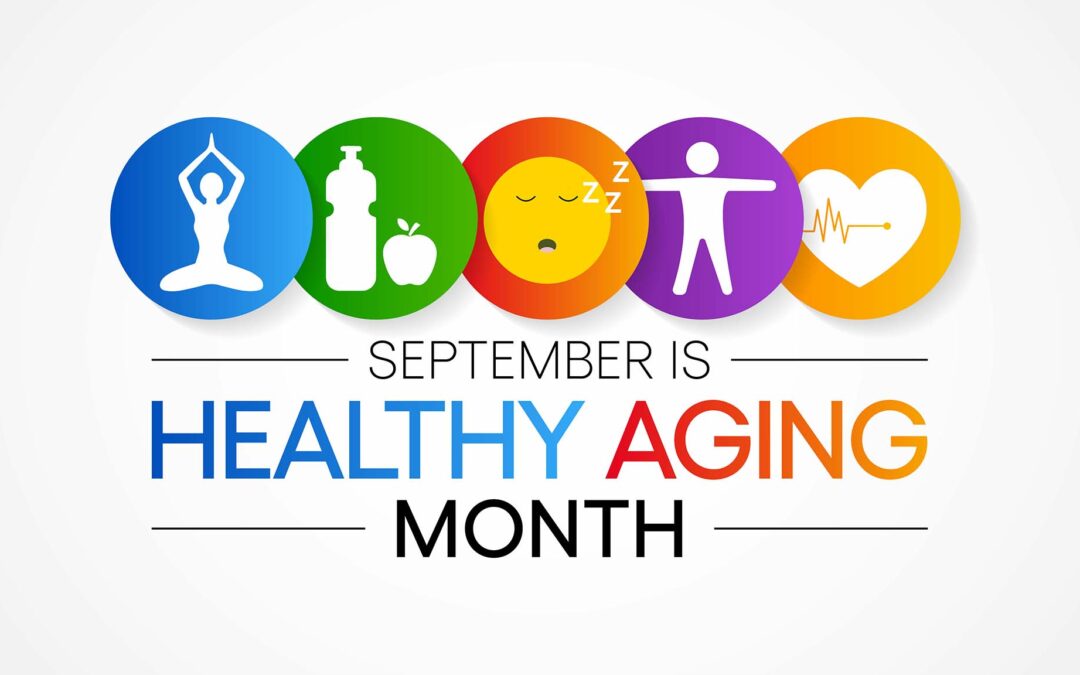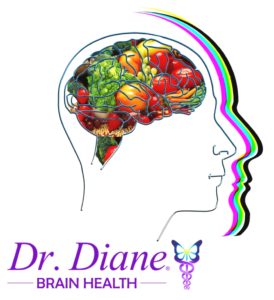Introduction
In the month of September, we shine a spotlight on the phrase “nurturing your mind” as we celebrate Healthy Aging Month. With the changing leaves and the crispness of autumn in the air, this special occasion encourages us to reflect on the importance of prioritizing our well-being, with a specific focus on brain health. In this blog post, we will explore the profound significance of brain health in the context of healthy aging. Furthermore, we will provide valuable tips and insights on how to ensure that your mind remains sharp and resilient throughout the years.
The Aging Brain: A Precious Asset
Our brain is undoubtedly one of nature’s most remarkable creations, serving as the epicenter of our thoughts, emotions, and actions. As we age, it’s natural that our cognitive functions may change, but that doesn’t mean we have to accept a decline in brain health as an inevitable part of aging. In fact, we can take proactive steps to support and nurture our brains throughout our lives.
Key Factors for Brain Health
- Nutrition: Begin by adopting a well-balanced diet that is rich in fruits, vegetables, whole grains, lean proteins, and healthy fats. These food choices provide essential nutrients that are vital for brain health. Omega-3 fatty acids, found in fish and nuts, are particularly beneficial for cognitive function.
Check out our brain-healthy recipes for ideas!
- Physical Activity: Beyond keeping your body fit, regular exercise offers immense benefits to your brain. Engaging in physical activity enhances blood flow to the brain, promotes the formation of new neural connections, and releases chemicals that uplift mood and cognitive abilities.
- Adequate Sleep:
Need help Sleeping? See our Brain Healthy Products for Sleep Issues.
- Mental Stimulation: Delve into mentally stimulating activities such as puzzles, reading, acquiring new skills, or even playing musical instruments. Think of these activities as “workouts” for your mind, fostering its sharpness and agility.
- Social Connections: Cultivate and maintain social connections, nurturing relationships with friends and family. These bonds provide not only emotional support but also essential mental stimulation. Social engagement helps guard against feelings of loneliness and depression, both of which can adversely affect brain health.
- Stress Management: Chronic stress can take a toll on your brain. Practice relaxation techniques such as meditation, deep breathing exercises, or yoga to reduce stress and promote mental well-being. These practices will reduce stress levels and enhance overall mental well-being.
- Brain-Boosting Supplements: Consider the potential benefits of certain supplements, such as vitamin B complex, vitamin D, and antioxidants, which have been linked to brain health. Nevertheless, always consult with a healthcare professional before adding supplements to your daily regimen.
- Regular Health Check-ups: Prioritize regular visits to your healthcare provider. These appointments can aid in identifying and addressing health issues that might affect your brain, including conditions such as high blood pressure or diabetes.
Challenges and Solutions
Acknowledging the changes that our brains undergo as we age is important. Memory lapses, slower information processing, and difficulty multitasking are common concerns. However, it is essential to understand that these challenges do not necessarily signify a decline in cognitive function. Instead, they may indicate that our brains require more support and stimulation.
- Memory Techniques: Learn memory techniques like association, visualization, and creating mnemonic devices to help improve memory recall. In addition, a Speech/Language Pathologist can assist with strategies to help with these struggles. Dr. Diane’s team of specialists includes Amy Karas, a certified Speech-Language Pathologist. Amy specializes in cognitive, social pragmatics, and language treatment. Forgetting can be the result of information no longer being stored or an interference with memory.
- Lifelong Learning: Enroll in classes, workshops, or online courses to keep your mind continuously engaged and learning.
- Mental Health: Seek professional help if you experience symptoms of depression or anxiety, as these conditions can affect cognitive function. Therapy and medication can be effective treatments.
Conclusion
As we celebrate Healthy Aging Month in September, let’s remember that nurturing our brain health is an essential part of the aging process. By making positive lifestyle choices, seeking mental stimulation, and staying connected with loved ones, we can promote cognitive resilience and enjoy a fulfilling and mentally vibrant life as we grow older. So, let’s embrace this month as an opportunity to prioritize our brain health and celebrate the wisdom and experience that come with each passing year. Your brain is your most precious asset; cherish it and keep it sharp for many years to come.



